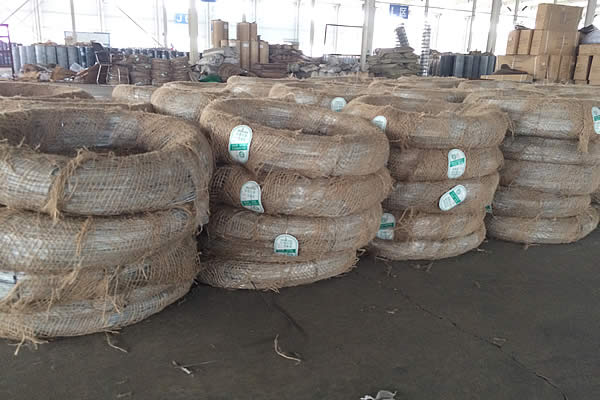 TEL:
+86-13102802206
TEL:
+86-13102802206
 Email:
fencenetting@china.com
Email:
fencenetting@china.com
 Language
Language
 TEL:
+86-13102802206
TEL:
+86-13102802206
 Email:
fencenetting@china.com
Email:
fencenetting@china.com
 Language
Language


Understanding Wire for Soldering Irons A Comprehensive Guide
Soldering is an essential skill for anyone involved in electronics, and the quality of your work often hinges on the type of wire you use for soldering. Selecting the right wire for your soldering iron can significantly impact the efficiency and effectiveness of your projects. In this article, we will explore the types of wire available for soldering, their compositions, and tips for choosing the best option for your needs.
Types of Soldering Wire
Soldering wire primarily comes in two forms lead-based and lead-free solder
.1. Lead-Based Solder Traditionally, lead-based solder has been favored for its excellent electrical conductivity and ease of use. It typically comprises tin (60%) and lead (40%), which melts at a relatively low temperature (around 183°C or 361°F). However, due to health and environmental concerns associated with lead exposure, its use has been restricted in many regions, particularly for consumer products.
2. Lead-Free Solder In response to regulatory changes and public health considerations, lead-free solder has gained popularity. This type of solder usually contains a combination of tin, copper, silver, and other metals. It generally has a higher melting point (typically between 217°C and 230°C or 423°F to 446°F), which can make it slightly more challenging to work with, especially for beginners. Nonetheless, lead-free solder is essential for modern electronics manufacturing and is required in many applications due to regulations like RoHS (Restriction of Hazardous Substances).
Composition Matters
The composition of soldering wire is critical to its performance. For example, solder with a high silver content provides better conductivity and a brighter finish, making it ideal for applications that require aesthetic appeal. However, silver solder can be more expensive. Conversely, basic lead-free solders containing primarily tin and copper are more economical and suitable for general use, such as in hobbyist projects or non-critical electronics.
Another important consideration is the diameter of the wire. Soldering wire is available in various gauges, and the choice depends on the scale of the soldering task. Thinner wire (0.3mm to 0.6mm) is ideal for intricate work with tiny components, while thicker wire (0.8mm to 1.2mm) is useful for larger joints or when soldering heavy wires.

Flux Core
Most soldering wires come with a flux core, which is an essential feature that helps clean the surfaces being soldered, allowing for better adhesion and reducing oxidation. The flux helps the solder flow smoothly when heated, making the soldering process more efficient. Common types of flux include rosin, water-soluble, and no-clean flux. Each type has different characteristics and is suited for specific applications
- Rosin flux Ideal for electronics, as it is non-corrosive and can be safely used in most applications. - Water-soluble flux Effective for cleaning but requires thorough washing post-soldering to prevent corrosion. - No-clean flux Designed to leave little or no residue, making it convenient for sensitive electronics.
Tips for Choosing the Right Wire
When selecting soldering wire, consider the following factors
1. Project Requirements Assess the electrical and thermal requirements of your project. For high-frequency or high-power applications, opt for wires with higher conductivity and temperature tolerance. 2. Skill Level Beginners may find lead-based solder easier to work with, while advanced users might prefer lead-free options for compliance reasons. 3. Health and Environmental Concerns Always consider safe practices regarding lead exposure and disposal of solder waste.
Conclusion
Choosing the right wire for your soldering iron can lead to more successful and efficient soldering projects. Understanding the differences between lead-based and lead-free solder, as well as the importance of wire composition and flux, will equip you with the knowledge to make informed decisions. By selecting the appropriate materials, you can enhance your soldering skills and achieve high-quality results in all your electronics projects.